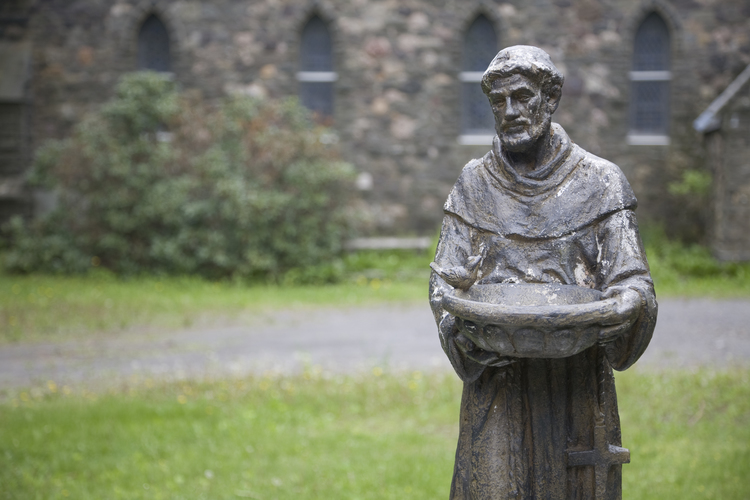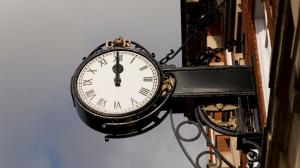
Do You Get a Black Moon?
What is a Black Moon, and why does it happen in December?
Many Catholics worldwide celebrate the Feast of St Francis of Assisi on October 4 each year. The feast commemorates the life of St Francis, who was born in the 12th century and is the Catholic Church’s patron saint of animals and the environment.

The feast of St Francis of Assisi commemorates the life of St Francis, here in statue form outside a church.
©iStockphoto.com/Terryfic3D
The feast of St Francis of Assisi is the most important festival of the Franciscan calendar in Assisi, Italy. It commemorates the saint’s transition from this life to the afterlife, according to the Catholic Church. For two days, starting on October 3, the town of Assisi is illuminated by oil lamps burning consecrated oil brought from a different Italian town each year. Solemn religious services are held in the Basilica of St Francis and in the Basilica of Santa Maria degli Angeli.
Many children in countries such as the United States bring their pets to the church to be blessed on St Francis’ feast day because of his love for animals as expressed in his Canticle of Creatures. People may also plan a nature walk and teachers, caregivers or parents may spend time helping children write about plants, insects and animals that they see. For many educators, caregivers and animal rights organizations, this day is an opportunity to teach children about endangered or abused animals and what can be done to help save these animals. This feast coincides with World Animal Day.
In addition to this feast, a secondary feast is still observed amongst traditional Roman Catholics and Franciscans around the world to honor the stigmata St Francis received. This day is celebrated on September 17 and is known as “The Impression of the Stigmata of St Francis, Confessor”.
The feast of St Francis of Assisi is not a public holiday in many countries but it is a popular observance among many churches around the world, including countries in North America (eg. the United States and Canada) and Europe (eg. Italy). It is also observed in places such as the United Kingdom and Australia.
St Francis (1181 or 1182 – 1226), founder of the Franciscan order of the Catholic Church, lived during the late 12th and 13th centuries in Italy. He is remembered for his generosity to the poor and his willingness to minister to the lepers. However, what many people recall about him is his love for animals and nature. St Francis died at Portiuncula, Italy on October 4, 1226.
Pope Gregory IX pronounced St Francis a saint in 1228. The pope also laid the foundation stone for the Basilica of St Francis in Assisi, Italy. The church, also known as Basilica of San Francesco d'Assisi, is a UNESCO world heritage site.
Symbols associated with St Francis of Assisi are:
Some of these symbols are seen around the time of the Feast of St Francis of Assisi.

What is a Black Moon, and why does it happen in December?

When will the next comet be visible?

Why do mornings keep getting darker after the December solstice?

How does the 12-hour clock system work? Is midnight 12 am or 12 pm?